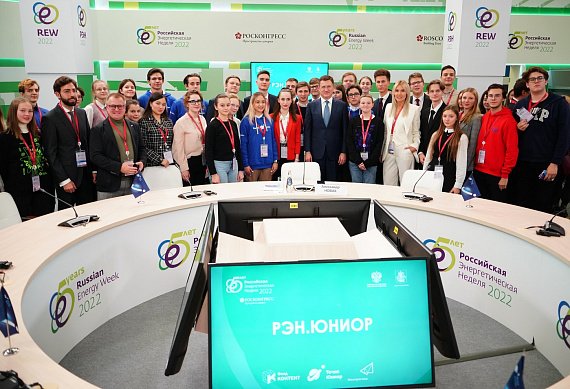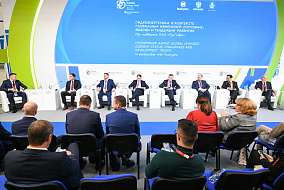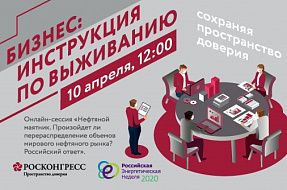October 21, 2022

REW Junior Participants Discuss Professional Sovereignty in the Fuel and Energy Sector at Russian Energy Week

Participants in the special REW Junior section – talented high school students planning careers in the fuel and energy complex – met with Alexander Novak, Deputy Prime Minister of the Russian Federation, held a roundtable with the rectors of leading industry-specific universities, and took part in a strategic session on transforming career opportunities.
On 14 October 2022, REW Junior – a special youth section – was held as part of the Youth Day of the Russian Energy Week International Forum (REW 2022) in Moscow, bringing together over 40 high school students, business leaders, industry government, and public figures.
The key part of the event was a meeting with Alexander Novak, Deputy Prime Minister of the Russian Federation, at which REW Junior participants discussed their future career paths in the fuel and energy sector.
The Deputy Prime Minister stressed the special importance of human resources in the energy and fuel and energy sector: as the world’s population and industrial production grow, the demand for energy is constantly increasing. In the next 15 years, global energy consumption will increase by 30%.
“From the position of a mentor, I can say that if you are planning to tie your professional destiny to the energy sector, it is one of the most promising and interesting professions. The fuel and energy sector is indeed one of the drivers of development of the global and Russian economy, industry and science. At the same time, the energy sector provides us with fuel, light and heat. Today, Russia ranks first in the energy industry in the world. And there are many promising areas that can and should be developed,” Alexander Novak said at a meeting with participants of REW Junior section.
The REW Junior business programme continued with a panel discussion involving representatives of industry-specific universities and major energy corporations, during which they discussed the role of universities in shaping the talent pool of the fuel and energy complex and youth projects and programmes implemented by industry-specific companies. Nikolay Rogalyov, Rector of the Moscow Power Engineering University; Oleg Baulin, Rector of the Ufa State Petroleum Technological University; Dmitry Sednev, Rector of the National Research Tomsk Polytechnic University; Veronika Minina, Vice Rector of the Higher School of Economics; and Ekaterina Lukyanova, Director of the Centre for Continuous Engineering Competence Development, Rosatom Corporate Academy, participated in the discussion. The discussion was moderated by Evgeny Szhenov, Scientific Supervisor, Expert and Analytical Center “Scientific and Educational Policy”, and Elena Myakotnikova, Advisor to the CEO of Sibur Holding.
The final event of the business programme was a strategic session on the staffing of the fuel and energy complex and related industries, developed jointly with Rosatom State Corporation. Based on the research conducted among schoolchildren, participants of the strategic session in the format of a project workshop formulated recommendations for transforming educational and career opportunities for the fuel and energy complex. The most popular recommendations included: having experienced mentors in the company to oversee the individual employee development plan, internal mobility to create opportunities to gain work experience in different departments, as well as early internships for first-year students to integrate into work processes as quickly as possible. Among the specific tools highlighted were hackathons, Olympiads, case championships and the creation of dedicated communities.
REW Junior is organized as part of the Point Junior project, implemented by the Content Foundation with the support of the non-state development institute Innopraktika and the Roscongress Foundation. The project forms a community of proactive teenagers (14–18 years old) by creating a cross-cutting agenda on key discussion platforms. Point Junior gives participants the opportunity to present their ideas and initiatives at a high level and receive mentoring support from prominent businesspeople, politicians, and public figures.





